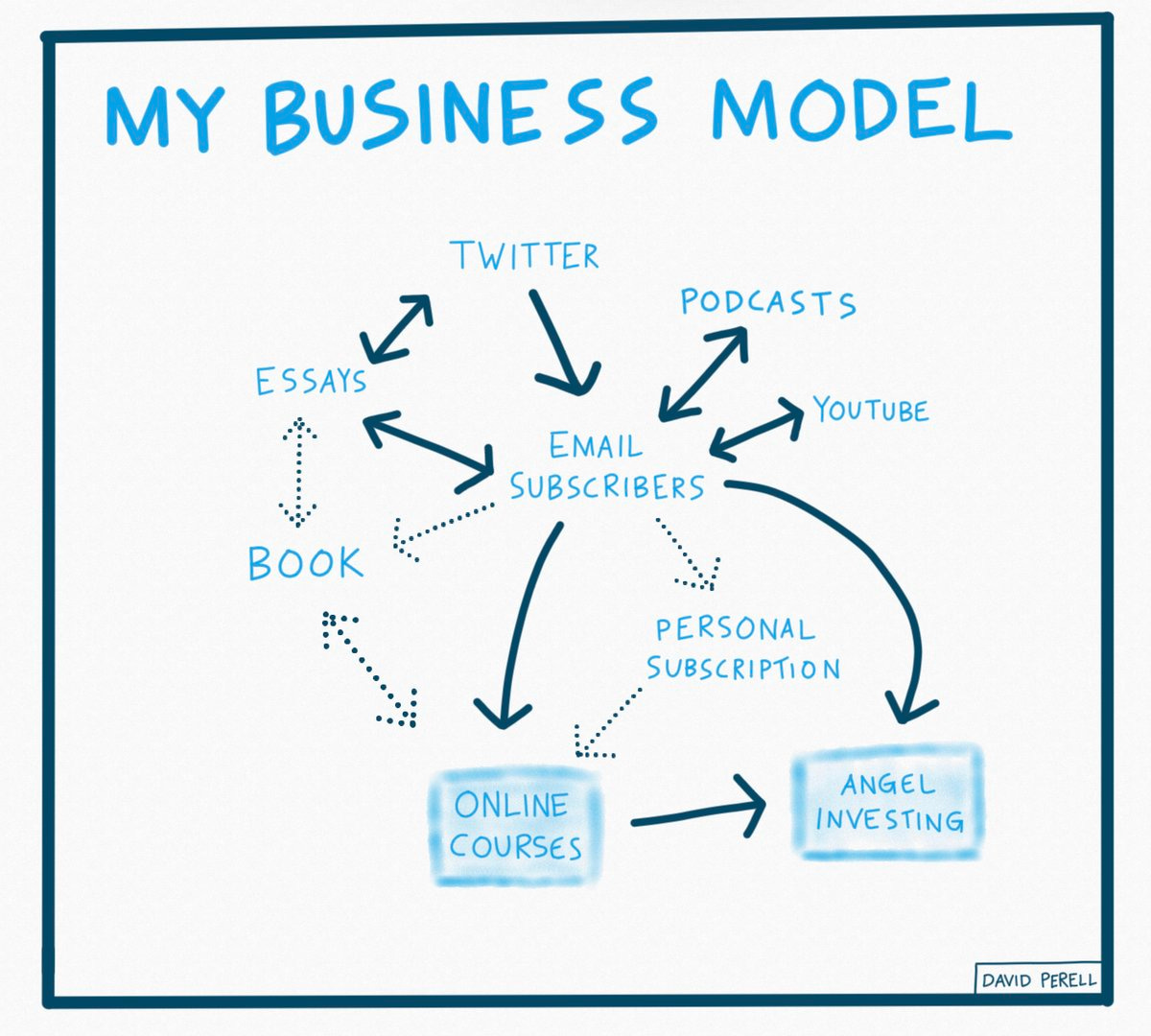Ten Opportunities for Successful Cohort-based Courses
And how to identify them, based on two years of research, 100s of conversations with online creators & successful examples
Academia, ed-tech and individual creators are all moving at breakneck speed towards creating “cohort-based courses”. Why a new term to describe this kind of education? Online courses with closed groups have existed forever – one could argue that all schooling, college, and extracurricular classes can fall under this label.
However, a unique combination of three elements signal a break from older formats of leraning experiences:
video interactions with an instructor or expert, usually live
a tightly-knit community of peers that takes the course together
a promise of some explicit outcome or transformation
Tiago Forte could be called a veteran in this space. He has experimented with multiple formats of his “Building a Second Brain course”: as a series of videos you could buy, as an interactive curriculum with some live components, and finally as an intensive 12-week cohort-based course (CBC). Check out his blog post on what makes CBCs unique and why they are here to stay.
Even though it is early days and the CBC format of learning is poised to grow, many will die before seeing even their third run. The effort-ROI ratio is high, and not always guaranteed.
From two years of a deep dive, I outline my top 10 recommendations to find opportunities in this space that are resonating with and promising online course builders.
This post is an expanded version of my Twitter thread, which has received encouraging responses from many people in the space I look up to!
So, why should you start an online course?
There's a talent pipeline problem in your industry.
LambdaSchool and NewtonSchoolHQ are rigorous coding bootcamps that guarantee software jobs in exchange for a percentage of future income. 10kdesigners upskills aspiring designers in India and prepares them for niche roles, fixing the hiring and training process in one swoop. More sector and geography-specific bootcamps are on the rise, demonstrating that if your industry needs talent, a CBC can create it.Potential customers don't know how to best use a product that they are convinced can be valuable.
RoamResearch is a tool for networked-thought and knowledge capture. Its powerful features come with a fairly steep learning curve compared to other products in its niche. In response, Nat Eliason – an early power-user of the tool –created Effortless Output with Roam to guide new users through key features and use cases. A testimonial from one of his students captures why enabling user learning should go hand in hand with great software:"As a tool, Roam is powerful - but without a strategy it is useless. This course helps you hit the ground running."
- Benjamin Von Wong
Another example I’m excited about is Zerodha (India’s #1 online trading platform) parterning with LearnApp to offer interactive financial literacy courses by experts. This will allow new investors to create and apply thoughtful strategies while trading on the platform, boosting usage and customer success for Zerodha.
You provide simple improvements over incumbents who teach essential and usually boring content.
Will Spoken English ever stop being in demand in India? It’s a passport to the aspirational ‘Indo-Anglican caste’, as Blume investor Sajith Pai puts it. No matter how many entities enter this business, there will be space for innovation in content, delivery and price points. This could very well come from a large distribution of individual creators – like my former school teacher, Roopika Sood (who also teaches amazing Origami courses)!You've shown expertise through created assets (books, blogs, videos), and there is demand to learn directly from the expert.
YouTuber Ali Abdaal started making 2 videos a week in 2017. Many in his place would give up after a few months of seeing no outcomes, but with sheery consistency and a commitment to quality, he’s now a popular Internet personality with ~2 million subscribers. When he decided to share his knowledge through the Part-Time Youtuber Academy, premium seats in his course-cohort and membership community sold out rapidly thanks to the credibility he had built over years. Read Ryan Gum’s account of Ali as an incredible Compounding Creator to learn more.Credible, established experts in every field are likely to offer cohort-based courses at some point in their lives. Do reach out to me if you are thinking of offering one!
There's static knowledge in a weird niche waiting to be brought alive for a bunch of nerds.
Jason Crawford is the author of The Roots of Progress, a website about the history of technology, industry and progress – a topic not typically discussed in school or college. Combining this gap with his interest, he launched Progress Studies for Young Scholars, "a guided self-study in the history of industrial civilization for high school students”. The takeaways from students – like Juan David Campolargo – are a delight to read on Jason’s Twitter!As someone who dropped out of school because of the irrelevance of our curriculum, I can imagine all the light bulbs going off thanks to the Progress Studies course. It makes me think about the vast fields of knowledge that will always be too niche or too unimportant to be offered in schools & colleges. CBCs can be that god-sent matching mechanism for the weird, curious kid to meet the weird, accomplished scholar.
There's an offline experience waiting to be brought online.
A few months ago, I published an account of my Bharatanatyam dance teacher taking a 2000-year old art form online, over years of trial and error.
Everyone thought it was a wasted effort. “People need to be in the same room to dance.” “A laptop can never replace the live music and percussion.” “How will the internet bandwidth hold strong?” Despite all objections, she continued to streamline the learning and teaching process. Today, the school serves over 80 students from 10 countries.There's an archaic experience waiting for innovation and energy.
Can you guess what Transcend co-founder Alberto is talking about in the following thread?Today I wrote for the @transcendnet newsletter about an industry that’s 50x bigger than the coding bootcamp market, and bigger than the revenues of Uber, Instagram and Airbnb combined.
Yet it barely gets any attention 👇— Alberto Arenaza (@albertoarenaza) July 31, 2020
He’s talking about the $24B/year corporate management training industry. With massive budgets and well-established incumbents, it’s a field open for innovation and disruption.
Ravishankar Iyer of Story Rules is making strides in this space. We co-designed the Effective Storytelling with Data CBC to not just be an intensive open-enrolment CBC, but also as a “plug-and-play” template for customized corporate trainings. Stay tuned for more exciting offerings from him!Courses are or can be a great addition to your business flywheel.
David Perell's prolific online writing brings people to his email list. People want to learn how he does it, leading them to his Write of Passage course. His teaching business is the short-term activity that fuels long-term investing. The way these elements reinforce and strengthen each other is a thing of beauty.Your institution can provide credibility to new and niche online courses, by signalling of learners’ skill/knowledge down the line.
There’s a lot of debate around whether ‘certification’ by an established academic institution is of value anymore. When content, community and assessments are aligned and of high-quality, I’d argue that this signal opens the door for you to create, meet people, and work with incredible organizations. Of course, one can do it all on your own or through other social structures – but not everyone wants to both do the work and figure out how to do the work on their own.
MIT’s MicroMasters Program in Data, Economics, and Development Policy is designed by faculty & researchers at the Abdul Lateef Jameel Poverty Action Lab (J-PAL), whose directors were co-awarded the Nobel Prize in Economics last year. Completing this rigorous online certification is a pathway to jobs at regional offices of organizations like J-PAL, as well as PhD programs that have rigorous pre-requisites. Particularly for development professionals in the global south, the credibility of this program has leveled the playing field with their research counterparts in richer countries!You're a celebrity/influencer who knows how they made it to the top, and are willing to genuinely share that.
We’ve probably all seen one MasterClass ad. Some of us may have even taken a class by these world-renowned experts or signed up for their webinars in the past year. I consider FrontRow an Indian take on the idea of MasterClass, with the helpful addition of dedicated communities for skills like vocal music, standup comedy, cricket, etc that help it move from MOOC-style courses to more of a cohort experience.
While I appreciate the pull of celebrity and high-quality videos, we’ve got to remember that entertainment ≠ learning. I agree with this article on what most MasterClasses offer:“Masterclass is selling the LeBron James poster we put on our bedroom wall, not the skills coach we hire to train us three times a week. And they’ve learned that adults aren’t so much different from our 11-year-old selves: we love to be inspired...”
Surely a masterclass in sales, if not in others! What are your thoughts on the promise of a MasterClass like model for education?
[BONUS] You do it because you really care.
What Anne-Laure Le Cunff has built with Ness Labs, and @TheAnnaGat does with Interintellect, is just a phenomenal labour of love. In addition to daily articles on mindful productivity, Anna-Laure has created a helpful community of people deeply interested in these and adjacent topics. Anna has created the format of 3+ hour unrecorded “Salons” on wide-ranging topics like the history of war, religious plurality, and the meaning of physical spaces, each co-hosted by members of the Interintellect community.
Their offerings are way underrated (& underpriced, imho) and you can really tell by the constant member-led participation and delight! While not exactly a cohort-based courses, there is a lot to learn from these ladies who fiercely create learning communities that they believe in.
For more wisdom on cohort-based courses, I highly recommend:
– Wes Kao’s blog (founder of Maven.com, a platform for CBCs)
– @julia_saxena and @ryangum’s atomic essays on Twitter
– @BillyBroas's newsletter
– @will_mannon's writing and podcast interviews
Finally, if you’d like to chat or consult about CBC’s with me, feel free to reach out! I’m always looking to partner with genuine educators, experts and creators who want to form or improve their learning communities.








we have experts and idea and try to help people by upbringing the culture of pay after placement by the name of acciojob ( https://acciojob.com )